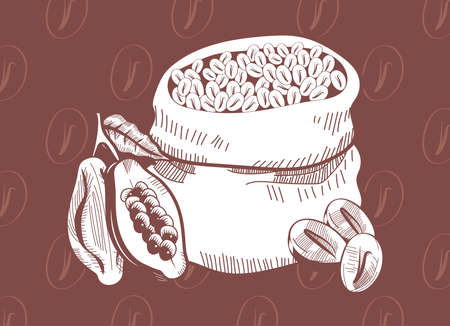1. Introduction to Tiffin-Style Coffee Canisters
When it comes to Indian households, nothing evokes a sense of comfort and tradition quite like the sight of a tiffin box sitting on the kitchen shelf. The tiffin-style coffee canister is a beloved staple, combining our rich cultural heritage with the daily ritual of enjoying a hot cup of filter coffee. In every corner of India, from the bustling streets of Mumbai to the peaceful bylanes of Chennai, these canisters have been quietly playing an essential role in preserving the aroma and flavour of freshly ground coffee. As lifestyles evolve and modern kitchens become more common, these traditional containers continue to hold their place, not just as storage solutions but as symbols of our shared culinary history. Let us explore how tiffin-style coffee canisters have transformed from mere utilitarian objects into cherished icons that connect generations over the love for good coffee.
Significance of Coffee in Indian Culture
Coffee holds a special place in the hearts and homes of Indians, especially in the southern states where filter coffee is almost a daily ritual. The aroma of freshly brewed decoction mixed with hot milk, poured back and forth between tumbler and davara, marks the beginning of many mornings. Coffee is more than just a beverage; it is a symbol of hospitality, warmth, and togetherness. Whether you are visiting relatives in Chennai or catching up with friends in Bangalore, serving filter coffee is an unspoken gesture of welcome.
In India, coffee breaks—popularly known as “chai time” but equally shared by coffee lovers—are moments to pause, reflect, and connect. From lively discussions at college canteens to family bonding during evening snacks, a cup of coffee often becomes the centrepiece of conversation. The freshness of coffee is highly valued, which is why traditional tiffin-style coffee canisters play such an important role in preserving its rich aroma and taste. These airtight containers ensure that every scoop retains its natural oils and flavour, making every brew as delightful as the first.
| Occasion | Coffee Tradition | Significance |
|---|---|---|
| South Indian Breakfast | Filter Coffee served with Idli & Dosa | Start to the day, family bonding |
| Festivals & Celebrations | Coffee offered to guests | Symbol of hospitality & respect |
| College/Office Breaks | Coffee at canteen or roadside stall | Socialising, stress relief |
| Evening Gatherings | Coffee with snacks (samosa, vada) | Relaxation, community spirit |
The importance of freshness cannot be overstated in Indian households. Stale or oxidised coffee simply does not make the cut for the perfect cup. This is why families rely on their trusty tiffin-style coffee canisters—sometimes passed down through generations—to store their precious coffee powder or beans. By preserving freshness, these canisters help maintain the authenticity and joy associated with each cup of Indian coffee.

3. Traditional Design and Materials
In every Indian household, the charm of tiffin-style coffee canisters lies in their timeless design and the materials chosen for their construction. Traditionally, stainless steel and brass are the most popular choices across South India and other coffee-loving regions. Stainless steel, known for its durability and rust resistance, is a staple in Indian kitchens. These canisters often come with tight-fitting lids and smooth finishes, ensuring that no moisture or outside aroma seeps in to affect your precious coffee powder. Brass, on the other hand, brings a touch of vintage elegance and is believed to retain the flavour and aroma even more effectively due to its natural properties.
What sets these traditional canisters apart is their thoughtful design, passed down through generations. The cylindrical shape is not just for aesthetics—it helps in minimal exposure of coffee powder to air, thus preserving its freshness for longer periods. Many canisters also feature an inner lid, which acts as an extra barrier against humidity. In Indian homes, where climate can vary from humid coastal weather to dry inland air, such features are essential to keep coffee tasting as rich as when it was freshly ground.
Moreover, using these materials adds a cultural touch to your daily coffee ritual. It’s not just about storage; it’s about tradition, nostalgia, and maintaining the authentic taste of filter coffee or instant decoction. When you open a tiffin-style canister in the morning, that burst of fresh coffee aroma is a small joy rooted deeply in our heritage. This careful attention to material and design ensures every cup holds the warmth and richness that Indians cherish in their coffee moments.
4. How Tiffin-Style Canisters Preserve Freshness
In Indian households, preserving the freshness of coffee powder is no small matter. With the diversity in climate—from the steamy coasts of Kerala to the dry heat of Rajasthan—coffee is at constant risk from humidity, light, and pesky insects. This is where our traditional tiffin-style coffee canisters shine, serving not just as containers but as guardians of flavour.
Protection Against Humidity
India’s monsoons and general humidity can quickly turn your aromatic coffee powder into a clumpy mess. Tiffin canisters are typically made from stainless steel or brass, materials known for their resistance to moisture penetration. Their tight-fitting lids ensure that air and dampness stay out, keeping the coffee powder dry and fresh, whether you live in Mumbai or Madurai.
Shielding From Light
Light exposure is another silent enemy for coffee powder, leading to loss of aroma and taste. Unlike transparent plastic jars, tiffin-style canisters are opaque. This simple yet effective design keeps light away from your precious brew, making sure every cup tastes like it’s meant to—rich and robust.
Keeping Pests at Bay
No one wants to discover ants or cockroaches in their morning filter coffee! The sturdy construction and secure lids of these canisters form a strong barrier against pests—a necessity in Indian homes where kitchens are often bustling with activity and food aromas.
Comparison Table: Tiffin-Style vs Regular Containers
| Feature | Tiffin-Style Canister | Regular Plastic Jar |
|---|---|---|
| Humidity Protection | Excellent (airtight metal lid) | Poor to Moderate (often loose-fitting) |
| Light Protection | Opaque (blocks light) | Transparent (exposes to light) |
| Pest Resistance | High (tight seal, strong material) | Low (easy access for pests) |
| Cultural Fit | Traditional & trusted in India | Modern but less reliable in local conditions |
Everyday Relevance Across India
No matter if you’re brewing kaapi in Chennai or sipping on strong filter coffee in Bengaluru, tiffin-style canisters make sure your coffee stays as fresh as day one. They are not just storage solutions—they are a slice of Indian daily life, blending practicality with tradition for every home.
5. Modern Adaptations and Usage
In today’s fast-paced Indian households, the beloved tiffin-style coffee canister has found new relevance. While the traditional brass or stainless steel containers still hold a special place in many kitchens, modern variations now come in sleek designs with airtight lids and even vibrant colours to match contemporary aesthetics. Brands are blending nostalgia with innovation by introducing canisters that retain the old-world charm yet meet urban needs for convenience and hygiene. Young couples setting up their homes in bustling cities like Bengaluru or Mumbai often choose these updated versions for both style and function. Interestingly, some canisters now feature see-through sections or smart locks, catering to tech-savvy families who want both tradition and practicality. Despite these updates, the core value remains unchanged: preserving coffee’s aroma and freshness while evoking memories of Amma’s kitchen or those comforting chai breaks during college days. This blend of old and new reflects how Indian kitchens respect heritage while embracing modernity, ensuring every cup of filter coffee is as fresh and flavourful as ever.
6. Cultural and Emotional Value
In every Indian household, the tiffin-style coffee canister is more than just a container; it holds a special place in the heart of family traditions. For many, these canisters evoke warm memories of childhood mornings, when the aroma of freshly brewed filter coffee would fill the home. Grandparents lovingly passed down their trusted canisters to the next generation, sharing not just an object but also stories, rituals, and recipes that made every cup of coffee meaningful.
Nostalgia and Personal Stories
The passing down of tiffin canisters often marks important milestones in a family. It’s common for mothers to gift their daughters or sons a cherished steel coffee canister as part of their wedding trousseau. These moments are deeply emotional—each scratch and dent on the canister tells a story of laughter-filled conversations, monsoon evenings spent sipping hot coffee, and festive mornings with relatives gathered around. Such hand-me-downs are treasured, reminding us of home and the bonds that unite us.
Tiffin Canisters in Festive Gifting
During festivals like Diwali or Pongal, gifting tiffin-style coffee canisters filled with fresh coffee powder or homemade sweets is a beloved tradition. This thoughtful gesture carries immense cultural value, symbolizing prosperity, continuity, and affection. The act of giving or receiving a tiffin canister during celebrations highlights not only its practical use but also its significance as a token of goodwill and familial love.
Conclusion: More Than Just Storage
The tiffin-style coffee canister stands as an enduring emblem of Indian hospitality and heritage. It connects generations through shared experiences and memories while playing a central role in festive customs. Owning one is to carry forward a legacy—one that celebrates togetherness, nostalgia, and the true essence of Indian culture with every cup brewed from its contents.

